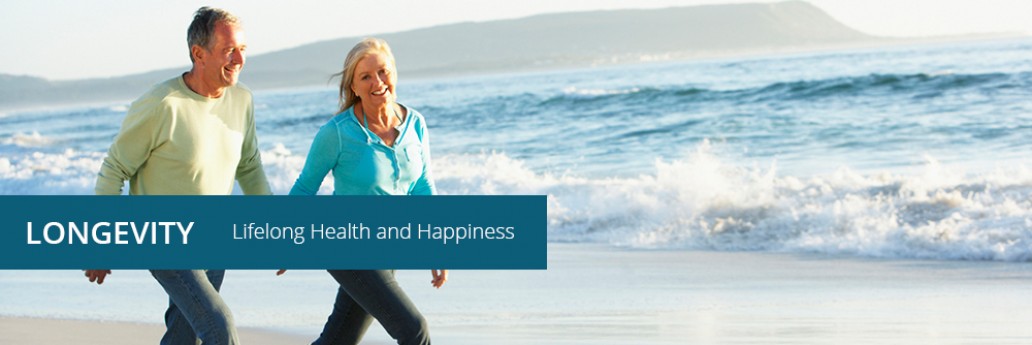
Introduction:
In the hustle and bustle of modern life, filled with sedentary routines and stress-inducing schedules, the secrets to a long and fulfilling life may seem elusive. However, by drawing inspiration from the lifestyles of individuals living in Blue Zones – regions of the world known for their remarkable longevity and vitality – we can uncover valuable insights into fostering health, happiness, and purpose.
For example,
Most of these people live in villages where cars are not used much. Instead, if you need to meet your friends or go to work, you walk. Along with that, people tend to do household chores themselves, wherever they live. Contrast this with the modern era where most people sit at home, drive to the office, and work sitting down. Then, for entertainment, if they need to go somewhere, they drive to the cinema hall to watch a movie sitting down. How little natural walking do we have in our modern era? The American Cancer Society surveyed more than 125,000 adults and found that those who sit more days have a 19% higher chance of dying in the next 21 years. Cancer, coronary heart disease, stroke, diabetes, kidney disease, liver disease, Parkinson’s disease, Alzheimer’s, nervous disorders—all in all, 14 causes of death become more likely the more you sit. In many studies, a very large core has been shown. Action is shown. Here’s a latest TV commercial that says just 11 minutes of walking every day reduces your pre-mature death risk by less than 25%. But obviously, in the case of the blue zones, where natural walking is more prevalent. The more you include natural working in your daily life, the better.
1. Embracing Natural Movement:

Blue Zone inhabitants prioritize natural movement in their daily lives, contrasting sharply with the sedentary habits prevalent in modern society. Rather than relying on cars and conveniences, they engage in activities such as walking and cycling, incorporating movement into their daily routines. Research underscores the health benefits of such practices, highlighting the link between sedentary behavior and increased risk of chronic diseases.
2. Finding Purpose and Connection:
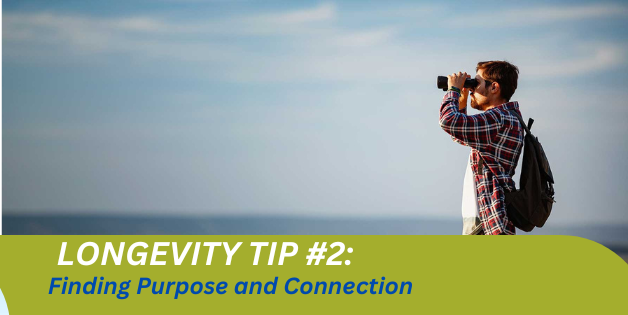
Central to the Blue Zone lifestyle is a sense of purpose, or what the Japanese term “Ikigai,” meaning “Reason for Being.” Individuals in Blue Zones continue to lead purposeful lives well into old age, defying the notion of retirement. Cultivating hobbies, volunteering, or pursuing meaningful activities fosters a sense of fulfillment and adds years to life expectancy.
3. Stress Management Techniques:

While stress is an inevitable part of life, Blue Zone inhabitants have developed rituals and practices to manage its impact effectively. From afternoon naps to social interactions and spiritual practices, they prioritize activities that promote relaxation and reduce stress levels. Research supports the benefits of such practices in improving cardiovascular health and overall well-being.
4. Mindful Eating and Fasting:
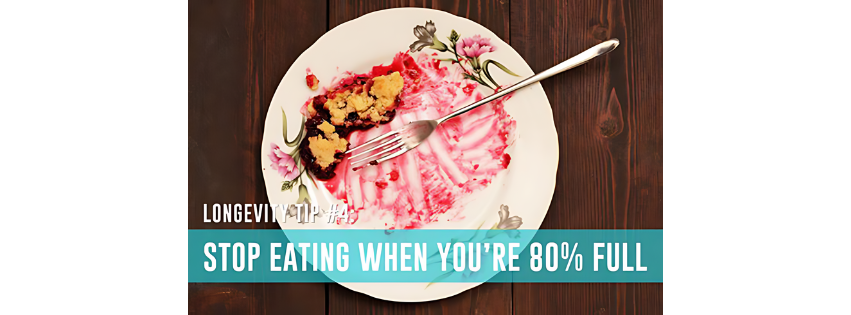
Incorporating mindful eating habits, such as the Okinawan practice of “Hara Hachi Bu” – eating until 80% full – can contribute to longevity and vitality. Additionally, fasting, a common practice across cultures and religions, has been linked to numerous health benefits. By embracing these principles, individuals can cultivate a healthier relationship with food and optimize their overall health.
Muslims fast during Ramadan and some fast before Easter too. Now scientists have found that fasting has many scientific benefits. Last year, a clinical trial conducted in a school clinic found that people who reduced their calorie intake by 14% saw several health improvements in their lives. Their aging process slowed down significantly. In 1935, a scientist made a significant discovery about mice. By feeding them significantly less food, he found that their lifespan increased by 33%. Similar experiments were conducted on various animals, whether they were humans or monkeys, and specific studies consistently showed that regularly eating less food extended lifespan by 50 to 300 percent.
5. Plant-Based Nutrition:

Plant-based diets are predominant in most Blue Zones. What kind of diet is this? It’s mostly a plant-based vegetarian diet. In Blue Zones, either meat is not eaten at all, or if it is eaten, it is consumed in very small quantities. Beans are a significant part of their diet, whether it’s fava beans, black beans, soybeans, or literally lentils. These are consumed in large quantities in certain regions, but on average, they are only eaten five times a month. Apart from this, whole grains are widely consumed in Blue Zones. Various types of vegetables are also consumed abundantly. Anything that grows beneath the ground, such as sweet potatoes, potatoes, or nuts and beans, is seen in their diet. In the Blue Zone community of Loma Linda, California, where people are fully vegetarian and some are vegan, a multiple research study was conducted analyzing vegetarian and vegan diets between 1980 and 2022. The conclusion drawn was that consuming plant-based diets reduces the risk of many diseases. Diabetes, dementia, high blood pressure, obesity, colon cancer, breast cancer, and prostate cancer were among the diseases studied by Dr. Warden in his meta-analysis on plant-based diets. He found that 95% of the centenarians surveyed in the five Blue Zones follow plant-based diets.
6. Rethinking Alcohol:
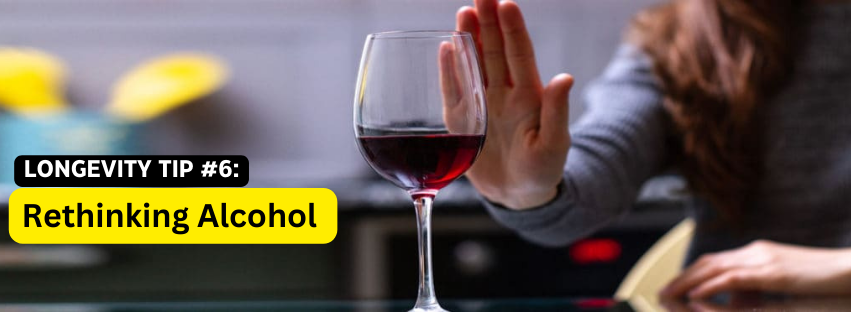
This is a controversial point. Research has found that in most Blue Zones except for the one in California, people consume a moderate amount of alcohol. For example, in Sardinia, people drink one to two glasses of red wine every day. Now, if you look at old research papers, there are many studies indicating that consuming alcohol without moderation could be good for health. This is because red wine contains antioxidants like resveratrol, which increase the level of good cholesterol in the body. However, this is perhaps an outdated point now because the latest research studies indicate that even a small amount of alcohol can be harmful to you. In fact, consuming zero alcohol may be the healthiest option. It turns out that most of the centenarians living in Blue Zones are long-lived not because of drinking but despite drinking. The beneficial antioxidants found in red wine are also present in grape juice, and they are even more present in grapes. So, if you want to reap the benefits, simply eat grapes.
7. Cultivating Belonging:

A Sense of Belonging: One common thread among Blue Zone inhabitants is their strong sense of community and belonging. Whether through religious congregations, social groups, or volunteering initiatives, fostering meaningful connections can enhance well-being and promote longevity. Studies have shown that individuals who are part of supportive communities tend to live longer and healthier lives, underscoring the importance of social ties in overall health.
8. Family and Friendship:
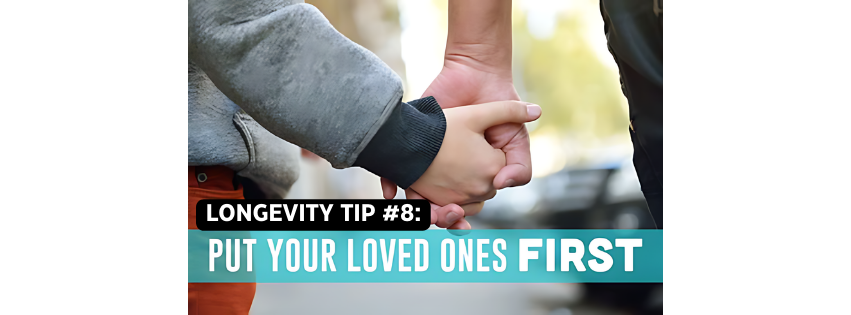
Prioritizing relationships with family and friends is crucial in Blue Zones. Supportive social networks influence lifestyle choices and contribute to better health outcomes. Research suggests that supportive social networks can influence lifestyle behaviors and contribute to better health outcomes, highlighting the significance of nurturing familial and friendship bonds.
9. New Blue Zones:
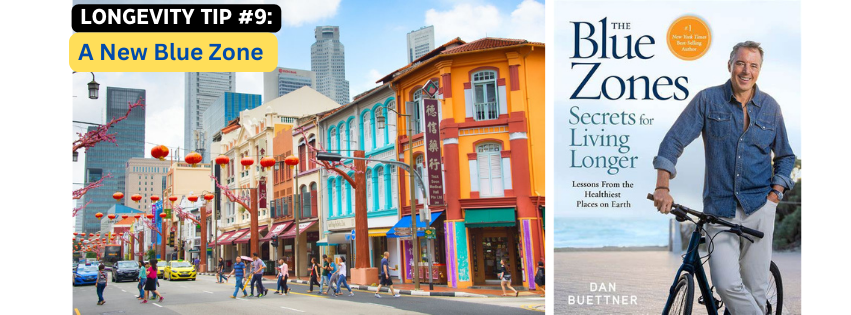
Finally, we come to the ninth point, which is being part of a friend circle. It consists of around five friends, and they remain committed to these five friends throughout their lives. These are a part of their social circle, which supports healthy behaviors. Many research papers show that smoking, obesity, happiness, or loneliness are continuous. If your friend circle consists of friends who promote good habits and do not promote bad habits, then it can be very beneficial for you. After hearing all this, a question may arise in your mind, is it possible to live a long life outside of these five zones? This question also came to mind. In the opinion of the experts, a sixth Blue Zone could soon be added to this group. However, such a Blue Zone where traditionally people did not live so healthily, but due to changing behaviors in the coming time, they could definitely become a new Blue Zone. This place is the country of Singapore. According to them, they have seen life expectancy increase by almost 25 years in Singapore over the past century. Today, people living in Singapore have one of the longest and healthiest life expectancies. The reason behind this is the policies made by the government that subsidize healthy eating, impose heavy taxes on junk food, and promote cooking. The government policies promote cooking. The infrastructure around them is designed in such a way that people walk more. Heavy taxes have been imposed on cars to discourage their use. Another interesting thing in Singapore is that if your elderly parents or grandparents live within 500 yards of your home, you get a tax break. So, the result is in front of you.
In Short:
So, the result is in front of you. Now you know exactly what to do. Living a long life may not break the human record of 120 years, but if you follow the things mentioned in this, you will easily hit the century. Blue Zones offer a roadmap to a longer, healthier life. By adopting fasting, plant-based diets, and nurturing social connections, we can unlock the secrets to longevity, whether in established or emerging regions.
Conclusion:
Embracing the principles of the Blue Zone lifestyle offers a roadmap to longevity, well-being, and fulfillment. By prioritizing natural movement, finding purpose, managing stress, and adopting mindful eating habits, individuals can unlock the secrets to a longer, healthier life. Let us draw inspiration from these timeless practices and embark on a journey towards a brighter, more vibrant future.

